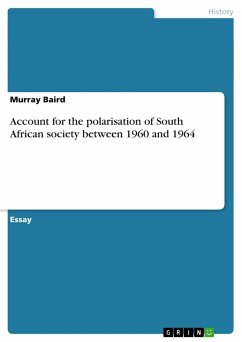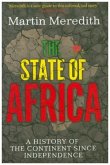Essay from the year 2008 in the subject History - World History - Modern History, grade: 1b, University of Stirling, course: Apartheid and Resistance in South Africa, 1948 - 1994, language: English, abstract: The South African government's preservation of apartheid during the 1970s was confronted with contradictory dilemmas. The need for permanent semi-skilled, rather than unskilled migrant labour, for a capitalist economy contradicted the apartheid policy of development in separate spheres: serious urban unrest, illustrated by the Soweto riots in 1976 when 575 people were killed, forced the realisation that repression alone was unsuccessful in quelling black agitation and that reform of the apartheid system was required, whilst the introduction of hostile governments in neighbouring states removed South Africa's buffer zone protecting it from African clamour for the overthrow of apartheid. This 'Total Onslaught,' perceived as being orchestrated by the Union of Soviet SocialistRepublics, threatened to replace South African apartheid with Marxist communism by overrunning white supremacists with a black proletariat. Under the emergent leadership of Pieter Willem Botha, the government adopted an all-encompassing policy of regional security measures with concomitant domestic reform between 1978 and 1984 to provide the "resolution of the conflict in the times in which we now live" that demanded "inter-dependent and co-ordinated action in all fields. It is therefore essential that a total national strategy" is "formulated at the highest level."
Bitte wählen Sie Ihr Anliegen aus.
Rechnungen
Retourenschein anfordern
Bestellstatus
Storno








